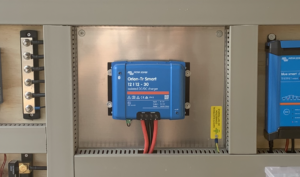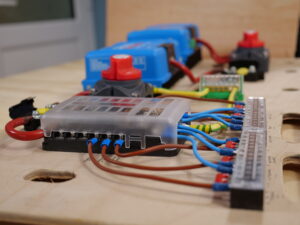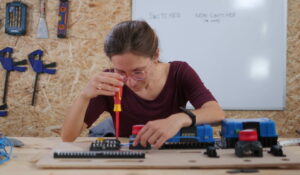How I Used Vanlife to Achieve Financial Independence (FIRE Retirement)
last updated: Sep 17, 2023
First up, a disclaimer, I am not a financial advisor, and I have not retired. BUT I have built myself into a pretty good financial position and, a core component of this, was the leveraging of vanlife to enable faster savings, to develop remote work, and to find an affordable (and beautiful) place to live.
Firstly, what is FIRE?
It stands for ‘Financial Independence Retire Early’ and is basically a mindset and method that focuses on saving as much as possible, as fast as possible, toward building up enough sources of income, or an investment portfolio, which means that the monthly cost of your ‘retirement’ is covered. Voila, you no longer need to work. In this method, the more frugally you live the faster you can reach your goal, and the more frugal your retirement the closer the goal becomes.
A core tenet of FIRE is that whatever you need to live on, multiply it by 20x and that is what you need in your stock portfolio (or roughly asset value that creates income). So if you need $50,000 to live a retired life, you must have a pot of $1m, if you need $20k to live then you need a pot of $400k.
(Note: it needs a bit more thought as inflation means in the long-term you need more money than you do today—and of course, there is plenty more to learn, but in this article, I will not go into the details. I do recommend you research this on your own.)
This is fine, only, I have zero desire to ‘retire’ in the traditional sense—or stop working on projects that I find meaningful. Sometimes these projects make money—sometimes they do not—I just do not want to be limited only to the projects that do.
So, for me, it is not ‘retiring early’ but more to enable greater freedom in what I do. Less ‘financial independence’ and more straight-up ‘independence’. It is, however, undeniable that financial matters lay at the heart of it.
What kind of life situation do you want?
I came across this question years ago, and I do not remember where – possibly Alan Watts. But it is a sort of philosophy sort of thing, with the aim of shifting your thinking away from what you want to achieve, the things you want to have, or the wealth you want to accrue, and moving toward thinking about how you want to live. The theory is that if you create the right environment, other important things like satisfaction and happiness will follow. On the other hand, if you aim toward owning objects, or externally validated goals, this is less likely to be the case.
I think this is a good way to consider a long-term vision for your life. For me, this ‘situation’ is related to what I spend my time doing, where I live, who I spend time with, and what sort of work I do.
For me, the ideal life situation is to be able to work only on that which interests me and to be able to move on when it no longer does. I want to live somewhere aesthetically beautiful—or at least somewhere I feel grateful to live—and ideally with good access to nature. In my mind, this was either near the sea or near the mountains.
The most important part however was to be able to work on things that interest me—and to be able to move on when they no longer do. This is where money comes in because if I need to make a lot of money every month, it has a huge impact on my ability to live my ideal life. If I need $5000 a month to cover my living expenses, mortgage repayments or rent – then that money must be earned – otherwise it will cause a significant amount of stress.
If I am making money through some sort of business or job, and it comes to a point where it no longer interests me – then I must keep working on it in order to pay for my life.
“Welcome to the real world Nate” I hear you say. True, true, but call me an idealist, stubborn, or spoilt, but I demand more from my life. I cannot accept that most of my time must be spent earning money to pay bills so that I can continue to earn money. My time is precious and limited and I do not want to spend it doing stuff I am not interested in to make money. Sure, 20% of my time sounds fine, but not 100% of my mental energy.
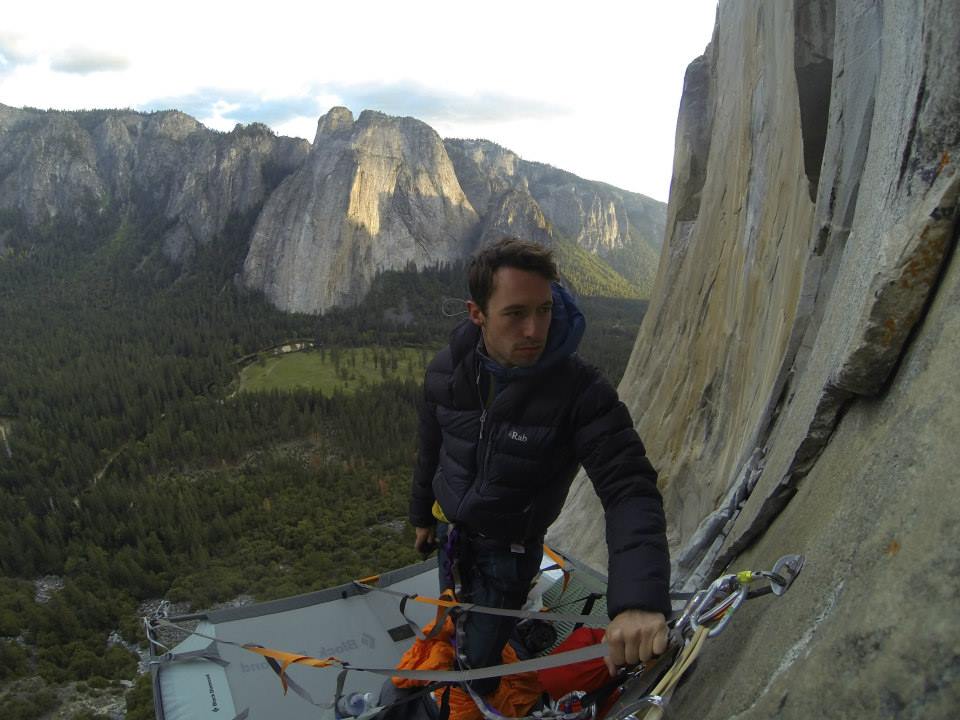
This is the trap of modern life
To earn $5000 a month (which may be a lot, or a little, depending on where you are coming from) requires either cash-generating assets, a business, or a job. To reliably generate $5000 a month from assets probably requires a total asset value of $800k-$1.2m. Money that must be made – probably at the expense of your time – and unless you have inherited wealth, or managed to cash out through a company sale, this means you are working for money.
It takes time to build a revenue source for a business and, like a job, it sort of locks you in – you must keep working on that project to ensure that you can keep working on that project.
In many European or American cities, to have low living costs requires you to own a property outright. It is no secret that property prices are absurdly high. What would have once cost someone 3x their annual income, is now nearer 10x. To rent and save a deposit for most people has become extremely difficult.
So in this, we are trapped with high mortgage payments, and the interest on the debt that completely stifles us financially, or paying rent—and whatever increases our landlords can thrust upon us.
Because food is relatively inexpensive, rent or mortgages are by far the biggest part of our living costs—and this is where vanlife comes in.
Leveraging vanlife to achieve financial independence
If I live in a van I do not pay rent, bills, property tax, or commute—I can live for far, far, less than when I live in a property in a city. I once was living in a van in the south of Spain, with my partner, and our monthly costs—insurance, fuel and food—came to about €200 each per month.
We were both working on projects that interested us and I was going climbing four days a week. It was like a holiday, only we were calling it life.
Take housing costs out of the picture, even if temporarily, and we massively increase our ability to reduce costs, save money or live outside of the treadmill of having to earn money.
If life costs you $500 a month, you can spend a year doing what the hell you want for just $6000. This is a very cheap way to buy an entire year of your life—for yourself.
Remote work & vanlifing
As I outline in this article, there has never been a better day than today for working as you travel, and living in a van can be fantastic for this purpose.
Now, probably the reason you are reading this post, is because I created a small business based on vans, van conversions and vanlife. So it gives the impression that I only made money this way because I got in on social media trends—but this is just one of many projects I have done over the years and there are many, many, ways to make money while living in a van.
Not only that, as many of these jobs require internet, and with Starlink offering high-speed satellite internet anywhere—truly this has never been easier.
How I used vanlife to achieve financial independence
Firstly, I brought my living costs down to $1200 a month. This was not as cheap as it could be, but I was also doing trips to the US for big-wall climbing and Asia for sport climbing in winter. I was only really in my van for 6-8 months a year but it was always my base and, after leaving the city in 2015, I have not paid rent since.
I left London when I was 31 and, at the time, had saved £60k—enough to travel for three years—and have a decent amount of money (to use as a run-way) should I come back to the city to work. I did consider using this money for a deposit for a flat in London, but as a single buyer, the best I would be able get with the maximum possible loan would have been a torrid little flat, in an ugly estate, in a grotty part of London. I could not bring myself to enter 25 years of debt for something I truly did not actually want.
With my new living costs (of $1.2k=£1K) I could travel for five years without earning a penny (being on holiday turns out to be massively cheaper than the cost of working in London).
As I had some old clients, and some people who wanted me to provide consultation on various things, without really looking for work—I was able to bring in about £500/month.
Now, with my ‘burn rate’ halved, I could travel for 10 years!
As I travelled, I worked on different ideas that interested me, one of them was a YouTube channel that originally was documenting my climbing and travel journey. I had some success with van conversion films—showing people how to build them—and over a period of several years, I turned it into a small business that today offers various van conversion eBook products and a van conversion course.
It did not take long to be earning more than my monthly expenses, mostly because they were so amazingly low! And, by the time I had been travelling for three years, I had made back my losses and had more money than when I started my travels.

Buying a house, then renovating it
After four years, I was making a similar amount of money as when I lived in London. The difference was that I was able to save 80% of it because my life was so damn cheap. This enabled me to buy a house in the mountains using cash.
The house had not been lived in for 25 years and it required a major renovation, but it was in a stunningly beautiful place and had views of solid gold. It cost €90k all-in. I borrowed money from my parents to enable me to get on with the renovation and a little over a year later—I finished renovating the house—and I had enough money to pay my parents back
On top of that, before I started the renovation, I sold my camper van—for £500 more than it cost three years prior—meaning that I had been living vanlife at zero-cost. I bought a new one, converted it, and lived out of it while doing the renovation (three years later, I sold that for a decent profit) and have now developed a method to approach vanlife and converting vans which makes vanlife free or profitable.
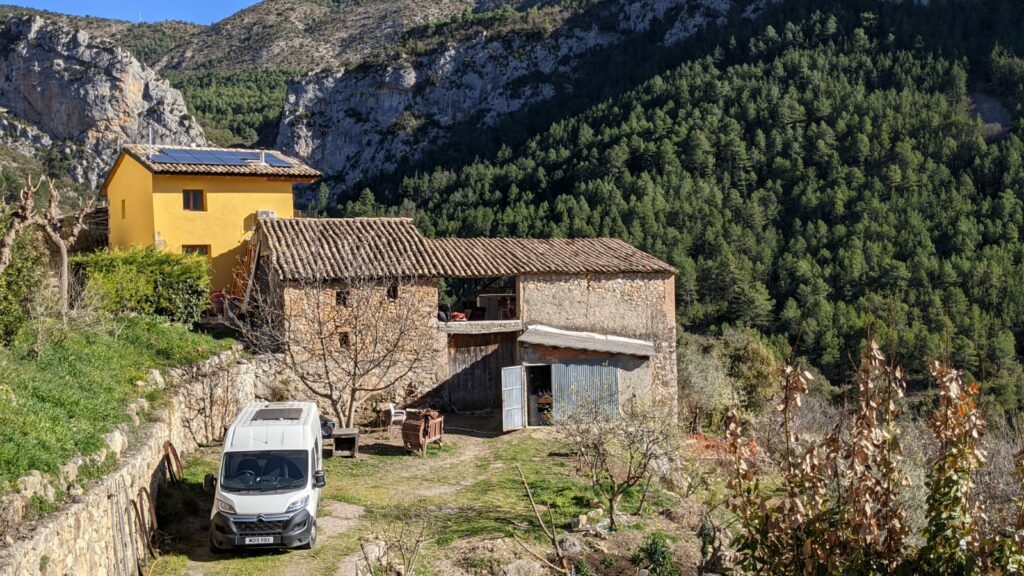
After this, suddenly I owned a house, debt-free.
After this, my mind turned more toward savings and a longer-term view of a future retirement. Again, how much we can save, depends on our costs.
Living in a house in the mountains, on average (over the last 6 months) costs me, inclusive of all bills, €400 a month (for both me and my wife it is €800). It helps that I installed a lot of solar and the house is super-efficient. Of course, if we travel away then this comes as additional lifestyle spending—but our base costs are low.
It is worth noting that many of the expensive things I need are actually business expenses (e.g. MacBook, phone etc.) so are outside of my personal costs, or I get things for free through my YouTube channel (e.g. home projector). I also spend an additional couple of thousand a year on travel and holidays – bringing the total monthly costs up to €550/mth.
With these low living costs, if I earn €5000 a month, I can save €4450 (or €53k a year).
If my business has a bad year and I earn €2500 a month, then I can still save €24k per year! If my business is doing incredibly well – the upsides are obvious when it comes to my savings.
The easily achievable a FOF fund (f*** off fund)
I am a big proponent of having a chunk of cash which means you can always ‘quit’ and do something else – or simply leave. Now, if my life costs me €400 a month, and I have €20k in the bank then, at any time, I can just quit what I am doing and do something else for four years!
This means I have achieved—to a good extent—the ability to choose the projects that I work on, and put them down if they no longer interest me (even if they are making money).
This is a major tick in my life goals.
The (more easily) achieved retirement fund
If I save 45k a year, for 5 years, I can put 225k tax-free into my pension—which after 20 years of compound interest at average rates—should be something like 900k. If I was to add 10k a year to the pot (after the first 5 years) it would be something like £1.3m. Not a bad retirement pot.
Based on the FIRE system of withdrawing 4% of the pot this would deliver €52k/year income – forever – meaning that I would tick the “do not be poor when you are old” life goal.
I strongly recommend playing with this tool to understand the power compounding interest to change your finances and your life. (7% is a fairly reasonable interest rate for index funds)
To summarise using vanlife to gain independence.
Vanlife was a really important tool which enabled me to change my life.
Vanlife enabled me to:
- Live a super fun and super cheap life – I could travel and focus on a passion for climbing, while paying no housing costs or the associated bills.
- Make my ‘living’ situation not just free but profitable; just from converting and living in vans, I have made thousands by selling them – even if after using them for a few years.
- Discover a beautiful and amazing place to live – with a pre-existing community based on the sports and activities I enjoy.
- Save enough to buy a house in cash – and live rent-free while I renovated it into a cost and energy-efficient home.
In turn, the above enabled me to:
- Own a home without paying a vast amount for it — or paying hundreds of thousands of pounds to the bank for interest on a mortgage.
- Invest all that money – which I would have spent on high property costs and mortgage interest straight into my pension and practically ‘tick’ this important part of my financial plan.
- Focus on new projects – I have been working on a book for the past years on Ideas and Ideology and also an organisation to disseminate the thoughts I have developed. This project has not been cheap, has required thousands of hours of work, and could never have been done if I had to earn loads of money just to pay my bills.
- Enable my partner to focus on big, risky, projects – and has now obtained funding for a high-tech cutting-edge biotech company that could help solve some of the world’s biggest problems.
Vanlife is not a solve-all, but it is an opportunity creator
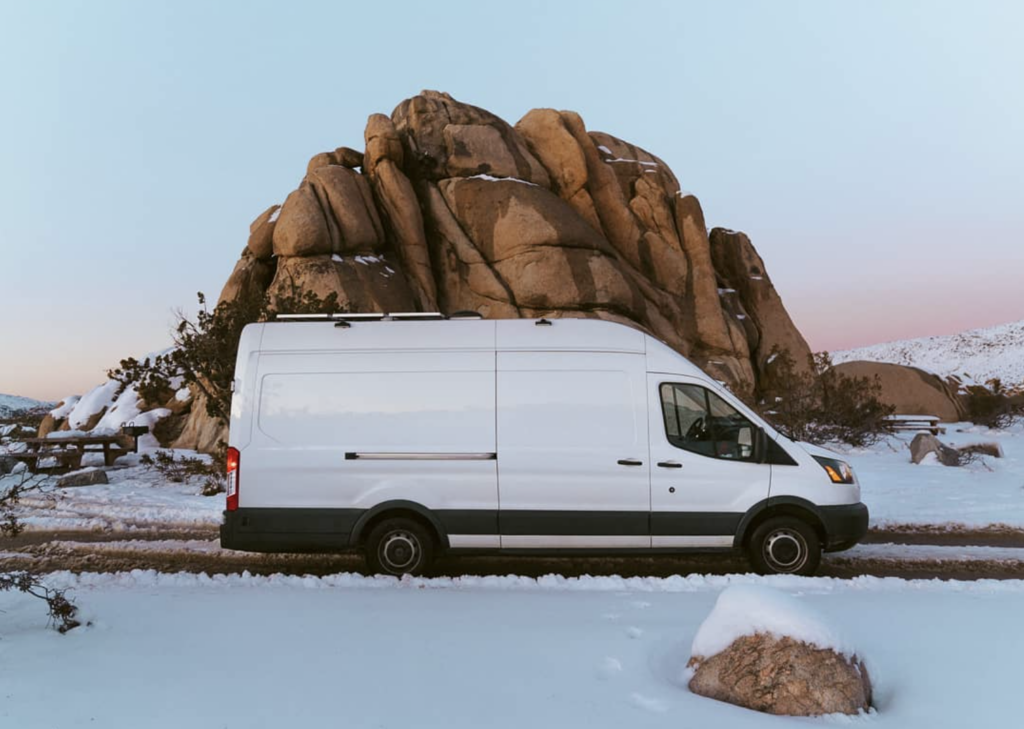
Of course, just living in a van is not going to automatically sort our lives out. We need to do other things too—work, experiment, think a little differently—but this is the best time to be able to make money while you travel.
I kind of see vanlife as this amazing tool, that allows you to focus on what is important, to take risks on projects or ideas that would not be possible with conventional living. It is almost like giving yourself the same benefits as the rich give their children (only way more badass) because your living costs are so utterly decimated that it’s like someone is paying for most of your life.
Forget the Instagram nonsense, ignore the people who turn living in a van into part of their identity. Vanlife is a tool. A great tool, but nothing more. It allows more freedom, a respite from rent and debt, and the opportunity to strive toward the situation that you want to have in your life.
Thanks for reading. If you know someone who might find this article useful – please share it with them – you never know it might really help them out.
—
Please check out The Van Conversion Guide (I wrote it).
Interested in other articles about making money online?
- How to make money as you travel (vanlife edition)
- How to Make Vanlife Zero-Cost & Access Affordable Travel
- Is Vanlife Cheaper than Renting?
Build your own adventure
The guide anyone can use to convert a van into a camper! With over $350 worth of savings inside
Do you want to live vanlife at zero cost?
Nate Murphy knows how to buy vans, convert them quickly and efficiently - use them for years - and then sell them for a profit. This can make vanlife not just free, but profitable!
He has successfully done this for years and he teaches his friends and students to do exactly the same. It is not obvious, but anyone can do it if they have the knowledge!
Join Nate at his free online training (running today) and he will teach you exactly how he does this!
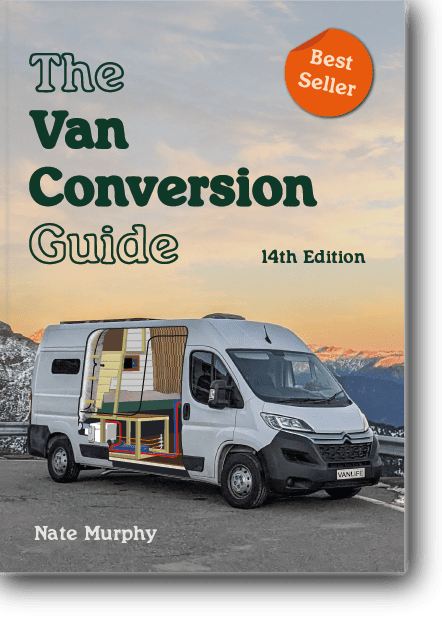
The Van Conversion Guide (14th Edition)
The guide anyone can use to convert a van into a camper! This best-selling guide, now in its 14th Edition, has been used by thousands of people to transform a van into a camper.
- 150+ page eBook
- Helps you convert any kind of van
- Diagrams for all the main systems
- FREE mini-course - 28 video tutorials
